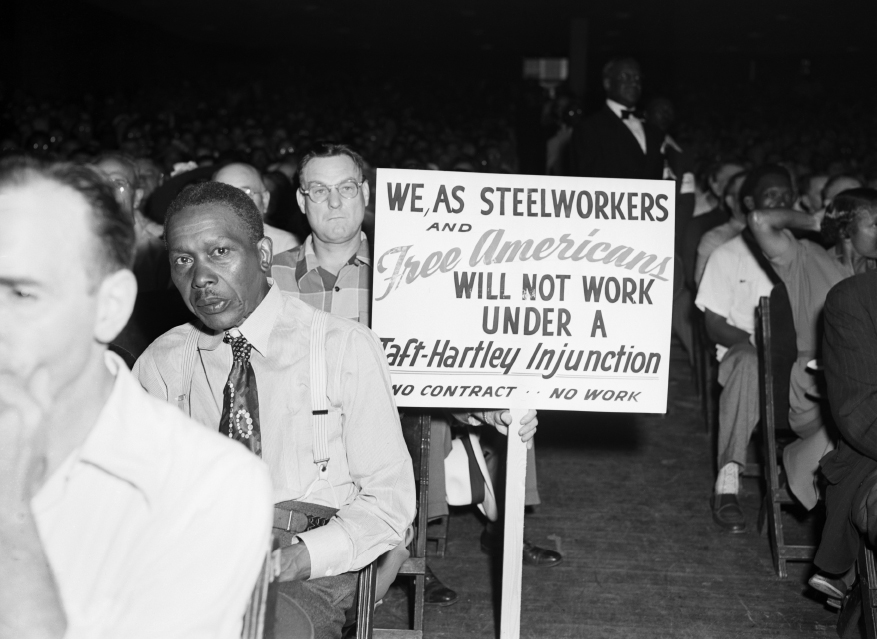Exploring American Histories: Printed Page 768
Exploring American Histories, Value Edition: Printed Page 630
The War and the Imperial Presidency
The Korean War boosted the imperial presidency by allowing the president to bypass Congress and the Constitution to initiate wars in the name of “police actions.” The war allowed Truman to expand his powers as commander in chief and augmented the strength of the national security state over which he presided. As a result of the Korean conflict, the military draft became a regular feature of American life for young men over the next two decades. The expanded peacetime military was active around the globe, operating bases in Europe, Asia, and the Middle East. During the war, the military budget rose from $13.5 billion to $50 billion, strengthening the connection between economic growth and permanent mobilization to fight the Cold War. The war also permitted President Truman to reshape foreign policy along the lines sketched in NSC-68, including the extension of U.S. influence in Southeast Asia. Consequently, he authorized economic aid to support the French against Communist revolutionaries in Vietnam.
Yet the power of the imperial presidency did not go unchecked. Congress deferred to Truman on key issues of military policy, but on one important occasion the Supreme Court stepped in to restrain him. The central issue grew out of a labor dispute in the steel industry. In 1952 the United Steel Workers of America threatened to go on strike for higher wages, which would have had a serious impact on war production as well as the economy in general. On May 2, after the steel companies refused the union’s demands, Truman announced the government seizure and operation of the steel mills to keep them running. He argued that as president he had the “inherent right” to take over the steel plants.

The steel companies objected and brought the matter before the Supreme Court. On June 2, 1952, the Court ruled against Truman. It held that the president did not have the intrinsic authority to seize private property, even during wartime. For the time being, the Supreme Court affirmed some limitations on the unbridled use of presidential power even during periods of war.
Review & Relate
|
What were the causes and consequences of the militarization of the containment strategy in the late 1940s and early 1950s? |
How did the Korean War contribute to the centralization of power in the executive branch? |